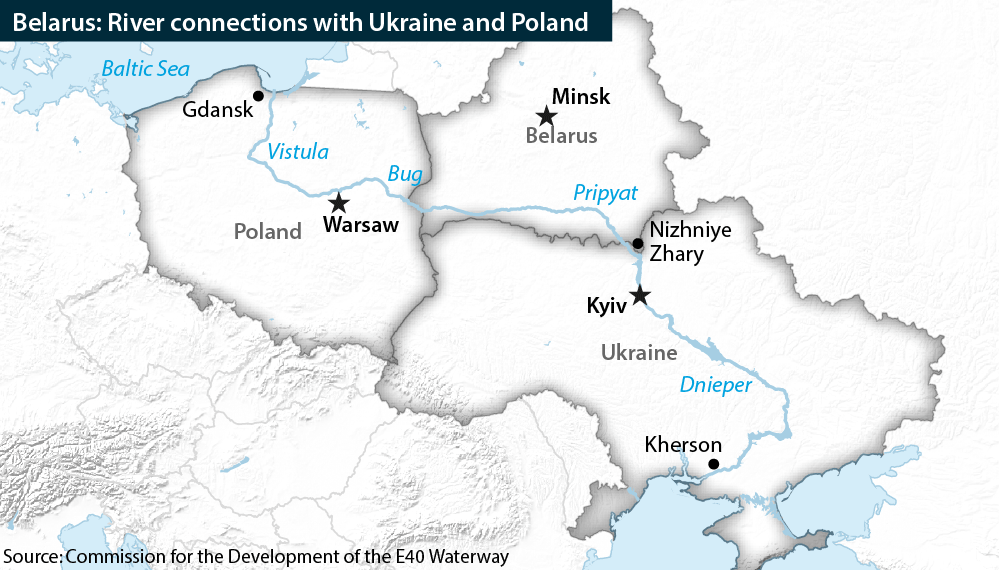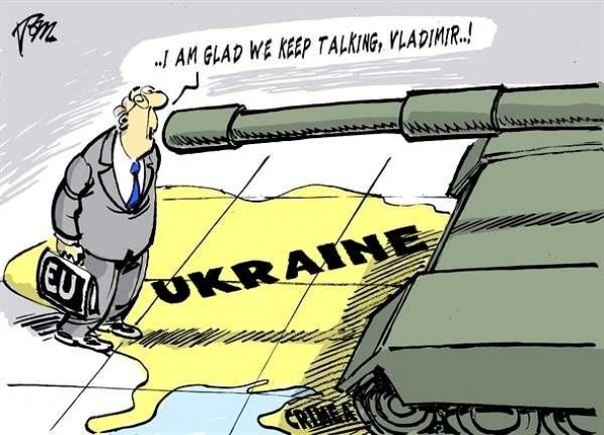Konstantin Dolgov, a representative of the Russian Foreign Ministry, gave a speech on September 13 at the Regional Conference of Russian Compatriots of Latvia, Lithuania, and Estonia in Riga. In his speech, he focused primarily on how the rights of Russian-speakers in the Baltics were being infringed upon, eerily reminiscent of speeches made about Crimea before its occupation. This is the latest indication that Moscow may be planning an invasion into the Baltics in the near future, a move which would likely spark a third World War.
He begins:
The defense of the rights and lawful interests of our compatriots abroad is one of the priority fields of activity of the Foreign Ministry of the Russian Federation – on which we work actively and proactively.
Indeed, by invading Ukraine, annexing Crimea, and funneling weapons to terrorists in Eastern Ukraine.
He continues:
Unfortunately, it is necessary to state that an enormous number of our compatriots abroad, entire segments of the Russian World, continue to encounter serious problems in the context of securing their rights and legal interests. One of the most obvious and vital reasons for this is the unrelenting growth of xenophobic and neo-Nazi tendencies in the world and their consequent, deep penetration into the consciousness of the political establishments in many foreign states [...] in particular among the countries of the European Union...
Moscow has continued to perpetuate the myth that “Nazis” and “Fascists” seized power Ukraine as pretext for their military involvement in the country. It appears that they may now be painting Europe with a similar brush, and “expressing concern” over imagined fascism in the Baltic states to provide justification for invasion and in the near future. Legitimizing these concerns, NATO Commander Philip Breedlove
said Monday that it will consider stealth and unofficial invasions to be a trigger for war.
The Russian official goes on to claim that the Human Rights Commissioner of the Council of Europe supports these assertions:
Council of Europe Human Rights Commissioner Nils Muiznieks agrees with this. He recently published a commentary with the title "Europe Must Fight Against Extremism And Defend Human Rights," in which he cited the opinions of several independent observers about how the growth of xenophobia in Europe "has reached the level of an early form of far-right terror [...] The dramatic development of events in Ukraine clearly attests to the correctness of this thesis."
On closer inspection, the article cited by Nils Muiznieks actually focuses on persecution of Muslims, and developments of the Russophile far-right in Greece, Hungary, and Serbia. Specific mention is given to Hungary and Greece's neo-Nazi parties, Jobbik and Golden Dawn. In the case of Jobbik, Russia invited members as observers to enforce the so-called referendum in Crimea. The group has been exposed for its financing from Moscow, while Golden Dawn has also been connected
to Russian influence. In relation to these ties, Russia has been described by researcher Anton Shekhovtsov as "building an anti-Western, anti-democratic "Fascist International" right in the EU's own backyard."
Maybe Dolgov should have left this report out.
Dolgov then discusses how the Ukrainian Parliament repealed the Law on State Languages in Ukraine, and that this was a massive infringement on Russian-language rights in Ukraine. What he fails to mention, however, is that the Ukrainian constitution already gives extremely liberal rights to all minority languages, Russian included, and that the loss of the law would do nothing to limit the right to use the Russian language. In fact, Russian speakers in Ukraine have greater rights and freedom to speak their minds in Ukraine than they do in Russia, a nation where people are frequently persecuted for speaking against the leadership.
Dolgov continues:
...the European Commission stubbornly maintains its unwillingness to intervene in the situation of the massive violation of the rights of the Russian-speaking population of the countries of the Baltic region under the excuse of a lack of jurisdiction.
We think it is unacceptable to justify marches of former SS legionnaires in Riga, meetings of veterans of the 20th Waffen SS division in Estonia, or ceremonial, with state honors, funerals for legionnaires/Nazi war criminals from the World War II era. [...] Elevating Nazi criminals and their collaborators, responsible for the intentional murder of millions of peaceful Europeans, nearly to the status of "freedom fighters" is the peak of cynicism.
Dolgov goes on to lament that Russian-language public schools will be shuttered in Latvia by 2018
. However, Russia itself teaches the vast majority of its students in Russian, despite having a very ethnically and linguistically diverse country. Every nation has the right to set domestic policy for publicly funded education and Latvia’s decision does not even begin to provide evidence of a rise in fascism.
Dolgov, the 'Special Representative for Human Rights, Democracy and the Rule of Law,' has a history of justifying human rights violations in Russia based on shaky premises. He previously classified criticism of Russia's anti-gay legislation as an international conspiracy, calling it "an attempt to accuse us of violating international obligations that do not exist.” He justified the repressive laws, saying saying that criticism of Russia’s legislation “is absolutely invalid and groundless” because it “aims in part to protect children from harmful information” and that the “promotion of homosexuality could harm them.”





